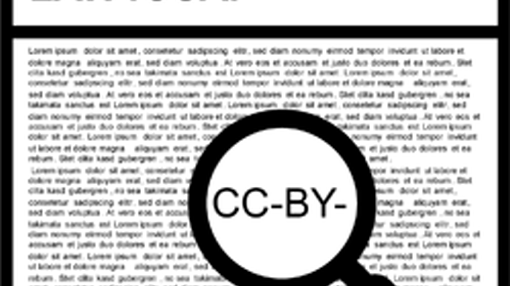Daniel Braun is an assistant professor at the Department of Industrial Engineering and Business Information Systems (IEBIS) at the University of Twente. Previously, he worked in the Department of Informatics at the Technical University of Munich, where he also received his PhD. Daniel holds a master's degree in Computing Science from the University of Aberdeen and a bachelor's in Computer Science from Saarland University.
His research focuses on the application of Natural Language Processing (NLP) and Artificial Intelligence (AI) in knowledge-intensive processes, with a focus on problems from the legal domain (Legal Tech). More broadly, he is also interested in the general application of NLP and Natural Language Generation (NLG) in the context of businesses and administration.
Organisaties
Publicaties
Onderzoeksprofielen
Verbonden aan opleidingen
Vakken collegejaar 2023/2024
Vakken in het huidig collegejaar worden toegevoegd op het moment dat zij definitief zijn in het Osiris systeem. Daarom kan het zijn dat de lijst nog niet compleet is voor het gehele collegejaar.
- 192320501 - Electronic Commerce
- 194100060 - Master Thesis IE&M
- 201300058 - Research Topics BIT
- 201300059 - Internship BIT
- 201500371 - Capita Selecta BIT
- 202000402 - Business Intelligence & Databases
- 202000403 - Business Process Management
- 202000404 - Professional and Academic Development M3
- 202000434 - BSc Research Assignment
- 202000559 - HOLI
- 202000576 - Research Proposal Bachelor Thesis IBA
- 202001068 - Business Intelligence and Databases
- 202001069 - Business Process Management
- 202001071 - Academic Skills M3
- 202001202 - Linear Algebra for BIT
- 202001464 - Thesis Preparation
- 202001521 - Capita Selecta EngD (external course)
- 202001522 - Capita Selecta EngD (in-company tr.)
- 202100283 - Statistics
- 202200345 - Applications of AI in Business
- 202300002 - Enterprise Software for the Integration
- 202300241 - Business Intelligence & Databases
- 202300242 - Business Process Management
- 202300243 - Business and Process Analytics Project
Vakken collegejaar 2022/2023
- 192320501 - Electronic Commerce
- 194100060 - Master Thesis IE&M
- 202000402 - Business Intelligence & Databases
- 202000403 - Business Process Management
- 202000404 - Professional and Academic Development M3
- 202000434 - BSc Research Assignment
- 202000559 - HOLI
- 202000576 - Research Proposal Bachelor Thesis IBA
- 202001068 - Business Intelligence and Databases
- 202001069 - Business Process Management
- 202001070 - Research Methods M3
- 202001071 - Academic Skills M3
- 202001202 - Linear Algebra for BIT
- 202001464 - Thesis Preparation
- 202100283 - Statistics
- 202200345 - Applications of AI in Business
Lopende projecten
Voltooide projecten
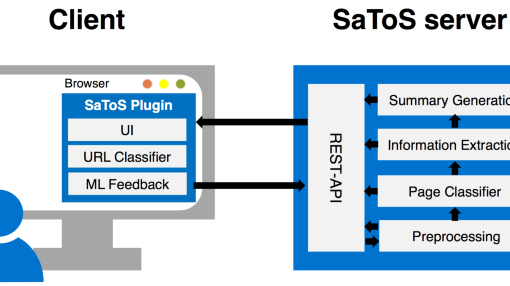
Software Aided Analysis of Terms of Services (SaToS)
The phrase "I have read and understood the terms of service" is often referred to as the biggest lie on the internet. Every time we buy something online, we are confronted with Terms of Services (ToS). However, only a few people actually read these terms, before accepting them, often to their disadvantage. General terms and conditions included in standard form contracts are of significant economic value, as most companies use these terms when entering into contractual relationships with their customers. The interdisciplinary computer and legal science research project SaToS (Software Aided Analysis of ToS) from the chair of Software Engineering for Business Information Systems (sebis) at TU Munich aims to automatically identify Terms of Services and summarise them with regard to their lawfulness and customer friendliness, in a simplified language. In this way, SaToS aims to empower customers to make educated decisions about where to buy or not within seconds, directly addressing the imbalance of powers and fostering the constitutional principle of legal clarity.
Meta Model based Natural Language Generation for Automatic Abstractive Text Summarization (A-SUM)
More than 5000 years after its invention, written language is still the most important medium to document and communicate knowledge. While the production of texts is simplified and accelerated by word processing software, template systems and other technologies, the consumption of texts is still a comparably little by technology supported process. The current state-of-the-art in automatic text summarization are mostly so called extractive methods, which extract the n most important sentences of a text by the means of metrics like TF/IDF. These summaries consist of mostly incoherent sentences. The goal of the BMBF founded Software Campus Project "Meta Model based Natural Language Generation for Automatic Abstractive Text Summarization" (A-SUM) is the creation of coherent, personalized automatic abstractive summaries. Instead of just extracting sentences, A-SUM aims to extract facts from texts and store them in an intermediate, meta model based, structured format. Based on user preferences and contextual information, this information can be personalized. By applying Natural Language Generation techniques, we aim to transform the structured representation of information back to a coherent text, which gives the recipient a quick and tailored overview of the content of the original text.
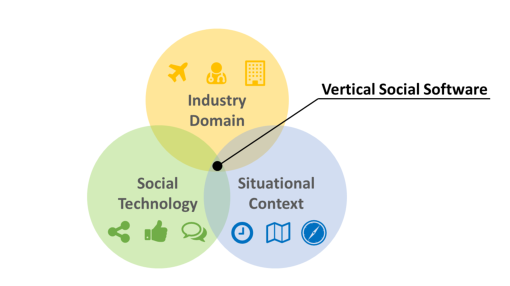
Vertical Social Software (VSS)
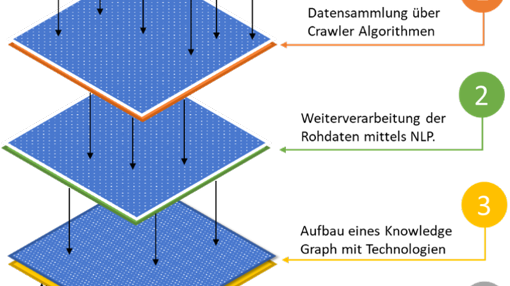
Technology Scouting as a Service (TSaaS)
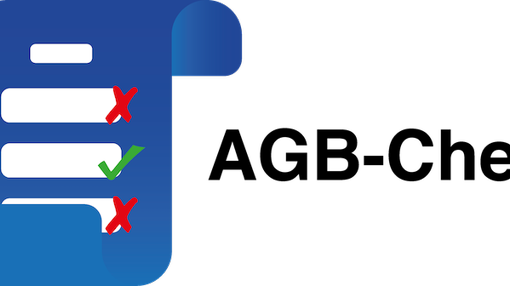
AI-Supported Legal Review of Terms and Conditions to Strengthen Consumer Protection (AGB-Check)
The advancing digitization is increasingly influencing everyday work in so-called “knowledge-intensive” professions. Software that supports experts in dealing with legal texts and questions is often summarized under the term "Legal Tech". In theory, it can help make legal expertise available more quickly and cheaply, and hence making it more accessible, especially for consumers. In practice, however, the necessary technologies are often only available to commercial actors. The goal of AGB-Check is the development of innovative technologies that support legal knowledge workers in their efforts to represent the interests of consumer in the digital age better and more effectively. Using the example of a specific application - automated legal reviews of terms and conditions - we want to research technologies that: Support experts in dealing with German legal texts by automatically analyzing them semantically and classify them regarding their legality Enables geographically and organizationally separated experts to participate together in the learning and development process of legal expert systems Allow to combine machine learning and rule-based techniques to process German legal texts to in hybrid systems
In de pers
Adres

Universiteit Twente
Ravelijn (gebouwnr. 10), kamer 3333
Hallenweg 17
7522 NH Enschede
Universiteit Twente
Ravelijn 3333
Postbus 217
7500 AE Enschede
